A liver transplant is one of the most complex and life-saving medical procedures available today, offering hope to people suffering from end-stage liver disease, acute liver failure, or liver cancer. Thanks to its advanced healthcare infrastructure, highly skilled surgeons, and comparatively affordable treatment costs, India has emerged as a hub for liver transplants. This guide provides a complete analysis of the liver transplant cost in India, covering the following key aspects:
- How much does it cost for a liver transplant?
- The general liver transplant cost in India.
- A city-wise breakdown of expenses.
- Costs of pre-operative tests and post-operative care.
- Factors influencing the cost of the procedure.
- Different types of liver transplants and their associated expenses.
We also list the top 10 hospitals in India for liver transplants, renowned for their excellence in liver care and surgery. These hospitals have a track record of high success rates, modern technology, and comprehensive pre- and post-operative care. If you are worried about raising funds, platforms like ImpactGuru can be a way to raise liver transplantation costs. Whether you’re exploring alternatives for yourself or a loved one, this blog provides a detailed and reliable guide to help you understand liver transplant cost in India.
If you want an in-depth understanding of treatment and surgery costs across various specialties in India, explore our Comprehensive Guide to Treatment & Surgery Costs in India.
Table of Contents
- How Much Does It Cost for a Liver Transplant in India?
- Why Are Liver Transplantation Costs Affordable in India?
- Liver Transplantation Costs In Different Cities In India
- Pre-operative Tests Costs For Liver Transplant In India
- Types Of Liver Transplant And Their Costs In India
- Factors Affecting Liver Transplantation Cost in India
- Top 10 Hospitals For Liver Transplant In India
- 1. Medanta – The Medicity, Gurgaon:
- 2. Global Hospitals, Chennai:
- 3. Apollo Hospital, Delhi:
- 4. Fortis Hospital, Mumbai:
- 5. Manipal Hospitals, Bangalore:
- 6. Max Super Speciality Hospital, Delhi:
- 7. Kokilaben Dhirubhai Ambani Hospital, Mumbai:
- 8. Artemis Hospital, Gurgaon:
- 9. Narayana Health City, Bangalore:
- 10. BLK Super Speciality Hospital, Delhi:
- Life After Liver Transplant In India
- Conclusion
- FAQs
How Much Does It Cost for a Liver Transplant in India?
Liver transplantation is a highly intricate surgical procedure requiring extensive medical expertise, advanced infrastructure, and post-operative care. Despite being a complex surgery, the liver transplant cost in India is significantly more reasonable compared to other nations like the USA, UK, or Singapore, where the procedure can cost ₹1.5 – ₹3 crores.
In India, the total liver transplant cost range between ₹20 lakhs and ₹35 lakhs, depending on various factors such as:
- The choice of hospital.
- The surgeon’s expertise.
- The city in which the procedure is conducted.
- Whether the transplant is from a living or a deceased donor, this can also impact the liver donation price.
This cost includes pre-operative tests, surgery, hospitalization, and basic post-operative care. However, certain expenses, such as medications, follow-up consultations, and unforeseen complications, may incur additional costs.
Detailed Cost Breakdown
1. Preoperative Evaluation and Tests (₹1.5–₹2.5 lakhs)
Before a liver transplant, both the donor and the recipient undergo extensive testing to ensure compatibility and assess the patient’s readiness for surgery. These include:
- Liver Function Tests (LFTs): To evaluate the severity of liver disease.
- Blood Tests: To scan for blood type compatibility and infection markers.
- Imaging Tests (Ultrasound, CT, MRI): To map the liver’s structure and identify abnormalities.
- Donor Screening: Detailed health checks to confirm the donor’s eligibility.
The cost of these tests ranges from ₹1.5 to ₹2.5 lakhs, depending on the hospital and the complexity of evaluations.
2.Surgery and Hospitalization (₹15 – ₹20 lakhs)
This is the largest component of the liver transplant cost and includes:
- Surgeon Fees: Liver transplants require a team of specialists, including hepatologists, transplant surgeons, anesthetists, and nursing staff.
- Operation Theater Charges: Advanced surgical tools and equipment are used during the procedure.
- Hospital Stay: Patients generally stay in the hospital for 10–20 days, including time in the Intensive Care Unit (ICU) for close monitoring.
- Living Donor Costs: If the transplant involves a living donor, the donor’s surgery costs and liver donation price are also included in the package.
3. Post-operative Care and Medications (₹2–₹4 lakhs per year)
After surgery, the patient requires intensive post-operative care, including:
- Immunosuppressant Medications: These are critical to prevent the body from rejecting the transplanted liver.
- Monthly cost: ₹15,000 – ₹30,000 (lifelong requirement).
- Follow-up Visits: Regular check-ups to monitor liver function and overall recovery.
- Rehabilitation: Some patients require additional support to regain strength post-surgery.
The first year of post-operative care for liver transplantation costs can be around ₹2 – ₹4 lakhs, and the expenses gradually decrease in subsequent years.
With so much going on, it’s important to arrange a liver transplant cost, and crowdfunding can be a solution for this medical emergency.
Why Are Liver Transplantation Costs Affordable in India?
1. Government Incentives for Medical Tourism
The Indian government promotes medical tourism by providing streamlined visa processes and supporting hospitals that cater to international patients.
2. Lower Operational Costs
Healthcare facilities in India operate at relatively lower liver transplant charges compared to Western nations due to factors like economic infrastructure and lower surgeon and staff salaries compared to developed nations.
3. Living Donor Transplants
India performs a higher percentage of living donor liver transplants than cadaveric transplants. Living donors reduce waiting times and certain costs associated with organ retrieval from deceased donors, while it may still include liver donation prices.
4. High Volume of Cases
With thousands of transplants performed annually, hospitals in India benefit from economies of scale, permitting them to offer competitive pricing without compromising quality.
Global Cost Comparison
| Country | Cost of Liver Transplant (₹) | Why Higher Costs Elsewhere? |
| USA | ₹1.5 – ₹3 crores | Higher operational costs, insurance-based pricing. |
| UK | ₹1.2 – ₹2.5 crores | Dependence on public healthcare and limited slots. |
| Singapore | ₹80 lakhs – ₹1.5 crores | Premium infrastructure and limited organ supply. |
| India | ₹20 – ₹35 lakhs | High success rates at affordable prices. |
What Does the Liver Transplant Charge Include in India?
- Surgery: All surgical fees, including anesthesia and equipment.
- Donor Care: Evaluation, surgery, and post-operative recovery for the donor.
- Hospitalization: Accommodation, ICU stay, and meals for the patient.
- Medications: Basic post-surgery drugs during the hospital stay.
India’s affordability doesn’t come at the cost of quality. Leading hospitals in India have success rates of 85–90% for liver transplants, comparable to the best medical centers globally.
Additionally, fundraising platforms like ImpactGuru help people to raise money to cover liver transplant charges.
Liver Transplantation Costs In Different Cities In India
The liver transplantation cost in India varies significantly based on the city and the healthcare facility. While metropolitan cities like Delhi and Mumbai have advanced medical infrastructure and renowned hospitals, tier-2 cities offer the procedure at a relatively lower cost. Below is a detailed breakdown of the approximate liver transplant charges in different cities across India.
Liver Transplantation Costs by City
| City | Approximate Cost (₹) | Top Hospitals |
| Delhi | ₹20 – ₹35 lakhs | AIIMS Delhi, Medanta – The Medicity, BLK-Max Super Specialty Hospital |
| Mumbai | ₹22 – ₹35 lakhs | Kokilaben Dhirubhai Ambani Hospital, Global Hospitals, Fortis Hospital |
| Chennai | ₹18 – ₹25 lakhs | Apollo Hospitals, Gleneagles Global Health City, SIMS Hospital |
| Bangalore | ₹20 – ₹28 lakhs | Manipal Hospital, Narayana Health City, Aster CMI Hospital |
| Hyderabad | ₹18 – ₹26 lakhs | Yashoda Hospitals, KIMS Hospital, Gleneagles Global Hospitals |
| Kolkata | ₹16 – ₹24 lakhs | AMRI Hospital, Fortis Hospital, Apollo Multispecialty Hospital |
| Pune | ₹18 – ₹25 lakhs | Ruby Hall Clinic, Sahyadri Hospitals, Jupiter Hospital |
| Ahmedabad | ₹16 – ₹22 lakhs | Sterling Hospital, Apollo Hospitals, CIMS Hospital |
| Lucknow | ₹15 – ₹20 lakhs | SGPGIMS, Medanta Lucknow, Apollo Hospital |
| Coimbatore | ₹14 – ₹18 lakhs | PSG Hospitals, Kovai Medical Center & Hospital (KMCH) |
Factors Influencing Liver Transplant Charges Across Cities
1. Hospital Infrastructure
- Tier-1 cities like Delhi and Mumbai host hospitals with cutting-edge infrastructure, leading to higher liver transplantation costs.
- Tier-2 cities like Lucknow and Coimbatore offer more affordable options without compromising on quality for many patients.
2. Surgeon Expertise
- Hospitals in major cities attract internationally trained surgeons, which can increase overall costs.
3. Living Costs in the City
- Metropolitan cities have higher costs of living, which often translates into higher hospitalization charges.
4. Availability of Donors
- Some cities have better-organized donor programs, which can reduce the liver donation price related to organ procurement.
Cost Comparison Between Tier-1 and Tier-2 Cities
| Category | Tier-1 Cities (Delhi, Mumbai) | Tier-2 Cities (Lucknow, Coimbatore) |
| Surgery Costs | ₹18 – ₹25 lakhs | ₹14 – ₹18 lakhs |
| Hospitalization | ₹3 – ₹5 lakhs | ₹2 – ₹3 lakhs |
| Post-operative Care | ₹2 – ₹4 lakhs annually | ₹1.5 – ₹3 lakhs annually |
While Tier-1 cities provide access to the best surgeons and facilities, Tier-2 cities are viable for those seeking cost-effective solutions without significant compromises on care.
Pre-operative Tests Costs For Liver Transplant In India
Pre-operative tests are a crucial step in assessing the patient’s overall health, liver functionality, and suitability for a liver transplant. These tests ensure the procedure’s safety and help determine the compatibility of the donor’s liver with the recipient. Below is a detailed explanation of the common preoperative tests required for a liver transplant and their approximate costs in India.
1. Blood Tests
- Purpose:
Blood tests are conducted to check liver function, blood group compatibility, clotting factors, and the patient’s overall health. - Types of Blood Tests:
- Complete Blood Count (CBC): To measure white blood cells, red blood cells, and platelets.
- Liver Function Tests (LFTs): To measure bilirubin, albumin, and enzyme levels.
- Coagulation Profile: To check the blood’s ability to clot.
- Approximate Cost: ₹5,000 – ₹8,000
2. Imaging Tests
- Purpose:
Imaging tests help visualize the liver, assess its condition, and identify any abnormalities such as tumors or cysts. - Types of Imaging Tests:
- Ultrasound of the Liver and Abdomen: Provides a detailed view of the liver structure.
- CT Scan or MRI: Offers high-resolution images of the liver and surrounding tissues.
- Approximate Cost:
- Ultrasound: ₹1,500 – ₹3,000
- CT Scan: ₹5,000 – ₹10,000
- MRI: ₹8,000 – ₹12,000
3. Serology Tests
- Purpose:
These tests are used to check for infections such as hepatitis, HIV, and other viral infections that can affect the transplant’s success. - Types of Serology Tests:
- Hepatitis B and C Screening
- HIV Screening
- Cytomegalovirus (CMV) Testing
- Approximate Cost: ₹4,000 – ₹7,000
4. Cardiac Evaluation
- Purpose:
Cardiac evaluation ensures the patient’s heart is strong enough to handle the surgery. - Tests Included:
- Electrocardiogram (ECG)
- Echocardiography
- Stress Test
- Approximate Cost: ₹7,000 – ₹12,000
5. Pulmonary Function Tests (PFTs)
- Purpose:
Pulmonary function tests evaluate the functioning of the lungs to ensure that the patient can recover well after surgery. - Approximate Cost: ₹2,000 – ₹4,000
6. Crossmatching and Tissue Typing
- Purpose:
These tests determine the compatibility between the donor and the recipient to reduce the risk of organ rejection. - Approximate Cost: ₹10,000 – ₹15,000
7. Psychological Evaluation
- Purpose:
Psychological evaluations ensure the patient is mentally prepared for the transplant and the post-surgery lifestyle changes. - Approximate Cost: ₹3,000 – ₹5,000
For insights into how such costs fit into overall treatment expenses, explore our Comprehensive Guide to Treatment & Surgery Costs in India.
Total Pre-operative Test Costs
The cumulative cost of pre-operative tests for a liver transplant in India ranges between ₹40,000 and ₹70,000. This variation depends on the hospital, the specific tests recommended, and the patient’s overall health condition.
Breakdown of Total Costs:
| Test Type | Cost Range (₹) |
| Blood Tests | ₹5,000 – ₹8,000 |
| Imaging Tests | ₹8,000 – ₹15,000 |
| Serology Tests | ₹4,000 – ₹7,000 |
| Cardiac Evaluation | ₹7,000 – ₹12,000 |
| Pulmonary Function Tests | ₹2,000 – ₹4,000 |
| Crossmatching & Tissue Typing | ₹10,000 – ₹15,000 |
| Psychological Evaluation | ₹3,000 – ₹5,000 |
Why Pre-operative Tests Are Important
1. Ensuring Patient Eligibility: Pre-operative tests determine if the patient can undergo a complex surgery like a liver transplant.
2. Minimizing Risks: Tests help identify potential risks, such as infections or heart problems, which must be managed before the procedure.
3. Improving Success Rates: A detailed evaluation of the patient and donor increases the likelihood of a successful transplant.
Types Of Liver Transplant And Their Costs In India
The type of liver transplant significantly influences the overall cost, as the complexity and associated procedures vary.
1. Living Donor Liver Transplant (LDLT)
- What It Is:
In an LDLT, a portion of the liver is taken from a living donor (usually a family member) and transplanted into the recipient. - Cost Range: ₹18 – ₹25 lakhs
- Reasons for Cost Variations:
- Donor evaluation and surgery
- Post-operative care for both donor and recipient
2. Deceased Donor Liver Transplant (DDLT)
- What It Is:
In a DDLT, the liver is obtained from a brain-dead donor who has consented to organ donation. - Cost Range: ₹20 – ₹30 lakhs
- Reasons for Cost Variations:
- Waiting list management
- Organ retrieval and transportation costs
3. Split Liver Transplant
- What It Is:
A single deceased donor’s liver is divided and transplanted into two recipients (usually one adult and one child). - Cost Range: ₹20 – ₹28 lakhs
- Reasons for Cost Variations:
- Requires highly skilled surgeons
- Advanced surgical facilities
4. Auxiliary Liver Transplant
- What It Is:
In this procedure, only a part of the donor’s liver is transplanted, while the patient’s diseased liver is left in place to regenerate. - Cost Range: ₹20 – ₹25 lakhs
- Reasons for Cost Variations:
- Less common, requiring specialized expertise
- Suitable for specific conditions only
5. Domino Liver Transplant
- What It Is:
In a domino transplant, a liver from one patient undergoing a different surgery (e.g., metabolic liver disorder) is transplanted into another recipient. - Cost Range: ₹22 – ₹30 lakhs
- Reasons for Cost Variations:
- Rare procedure
- High level of surgical complexity
Comparison of Types and Costs
| Type of Liver Transplant | Cost Range (₹) | Key Factors Influencing Cost |
| Living Donor Liver Transplant | ₹18 – ₹25 lakhs | Donor surgery, recovery, and post-operative care |
| Deceased Donor Liver Transplant | ₹20 – ₹30 lakhs | Organ retrieval, waiting list fees |
| Split Liver Transplant | ₹20 – ₹28 lakhs | Surgical expertise, advanced facilities |
| Auxiliary Liver Transplant | ₹20 – ₹25 lakhs | Partial liver procedure, specialized expertise |
| Domino Liver Transplant | ₹22 – ₹30 lakhs | Rare procedure, surgical complexity |
Factors Affecting Liver Transplantation Cost in India
The liver transplant cost in India is influenced by several factors, which vary based on the medical requirements of the patient, hospital infrastructure, and other associated services, making it important to raise significant funds for medical treatment. Below are the primary factors affecting the cost:
1. Hospital Location and Reputation
- Due to advanced infrastructure and specialized care, liver transplant charges are higher in metro cities and renowned hospitals.
- Smaller cities and tier-2 hospitals may offer the procedure at relatively lower costs.
2. Surgeon’s Expertise
- Highly experienced and reputed transplant surgeons charge premium fees.
- The liver transplant cost also includes the fees of the surgical team, anesthesiologists, and supporting staff.
3. Type of Liver Transplant
- Living donor transplants require two surgeries (donor and recipient), making them more complex and resource-intensive. This can lead to a higher liver donation price than the deceased donor transplants.
- Deceased donor transplants involve organ retrieval, preservation, and transportation logistics.
4. Pre-operative Tests
- Extensive diagnostic tests such as blood work, imaging, and liver function evaluations add to the total liver transplantation cost.
- The number and type of tests depend on the patient’s health condition.
5. Post-operative Care
- Costs include ICU stays, follow-up consultations, and immunosuppressive medications, which are often lifelong.
- Longer recovery periods or complications may increase the cost.
6. Donor-Related Costs
- Living donor evaluation and surgery require additional resources and care for the donor.
- Deceased donor transplants involve legal and logistical charges.
7. Insurance Coverage
- The extent of insurance coverage determines out-of-pocket expenses.
- Some plans cover partial or full costs, while others have exclusions or limits.
8. Legal and Administrative Costs
- Deceased donor transplants may include additional expenses for organ allocation and legal compliance.
Top 10 Hospitals For Liver Transplant In India
1. Medanta – The Medicity, Gurgaon:
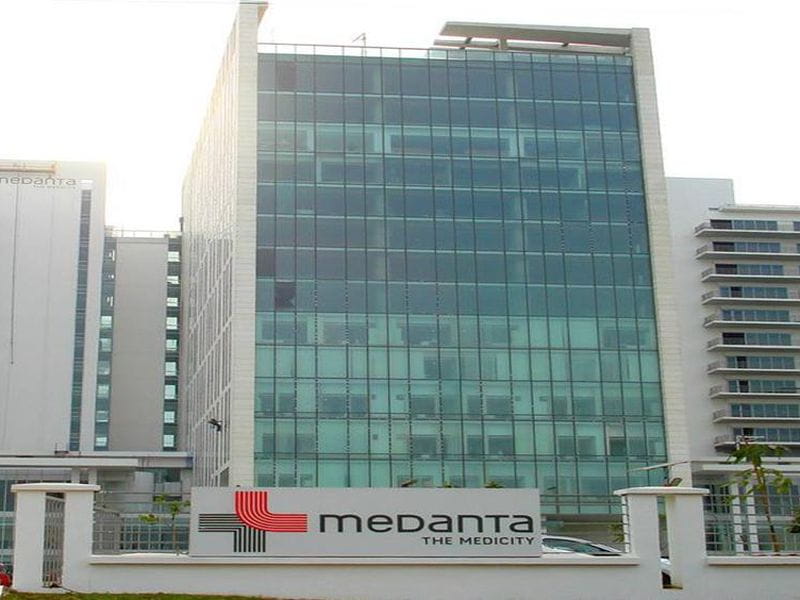
Hospital Overview
- Name of the Hospital: Medanta – The Medicity
- Location: Gurgaon, Haryana
- Established: 2009
- Accreditations: NABH, JCI
Achievements and Milestones
- Number of Liver Transplants Performed: Over 3,000 successful liver transplants.
- Pioneering Techniques: Known for minimally invasive liver transplant surgeries.
- Firsts: Performed the first successful robotic kidney transplant in India.
- Success Rate: Approximately 95% success rate in liver transplants.
- Other Important Achievements: Recognized for advanced research in hepatology.
Medical Team
- Surgeons: Dr. A.S. Soin (Chairman, Liver Transplant), Dr. Neelam Mohan (Director, Pediatric Gastroenterology).
- Multidisciplinary Team: Includes experienced hepatologists, anesthetists, critical care specialists, and transplant coordinators.
- Experience: Combined experience of over 50 years in liver transplantation.
Facilities and Technology
- Liver Transplant ICU: Dedicated state-of-the-art ICU for liver transplant patients.
- Advanced Technology: Equipped with the latest surgical instruments and robotic systems.
- Imaging and Diagnostic Facilities: Advanced MRI, CT scans, and liver function testing.
Comprehensive Care
- Pre-Transplant Evaluation: Thorough assessment of donors and recipients, including psychological evaluation.
- Post-Transplant Care: Comprehensive rehabilitation services and regular follow-up clinics.
Support Services: Counseling, dietary support, and patient education programs.
2. Global Hospitals, Chennai:
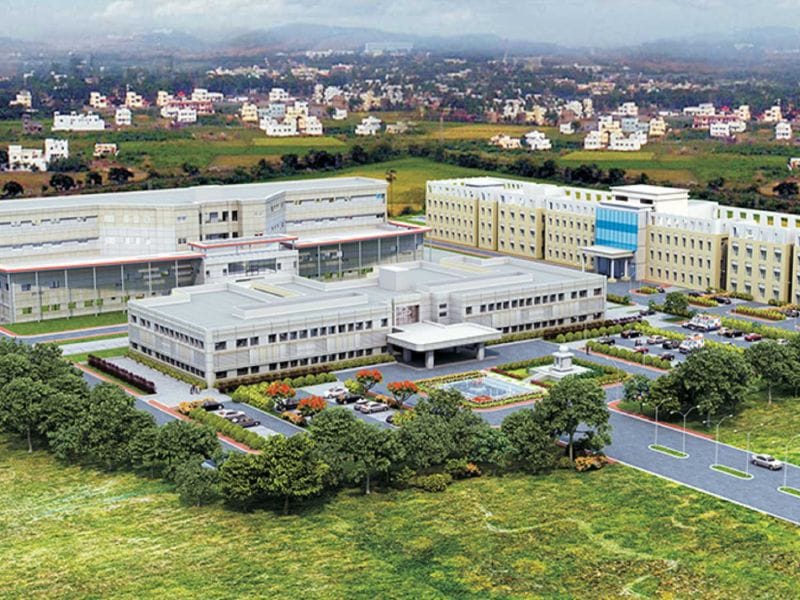
Hospital Overview
- Name of the Hospital: Global Hospitals
- Location: Chennai, Tamil Nadu
- Established: 1999
- Accreditations: NABH
Achievements and Milestones
- Number of Liver Transplants Performed: Over 2,000 successful liver transplants.
- Pioneering Techniques: Introduced split liver transplantation in India.
- Firsts: First hospital in South India to perform a successful liver transplant.
- Success Rate: Around a 90% success rate in liver transplants.
- Other Important Achievements: Known for multi-organ transplant expertise.
Medical Team
- Surgeons: Dr. Mohamed Rela (Chairman and Managing Director), a renowned liver transplant surgeon.
- Multidisciplinary Team: Includes hepatologists, anesthetists, critical care specialists, and transplant nurses.
- Experience: Team with extensive experience in complex liver transplant cases.
Facilities and Technology
- Liver Transplant ICU: Specialized ICU with advanced monitoring systems.
- Advanced Technology: Cutting-edge surgical equipment and facilities.
- Imaging and Diagnostic Facilities: Comprehensive imaging services, including advanced MRI and CT scans.
Comprehensive Care
- Pre-Transplant Evaluation: Detailed medical and psychological assessment of patients.
- Post-Transplant Care: Structured follow-up programs and rehabilitation services.
Support Services: Nutritional counseling, psychological support, and patient education.
3. Apollo Hospital, Delhi:
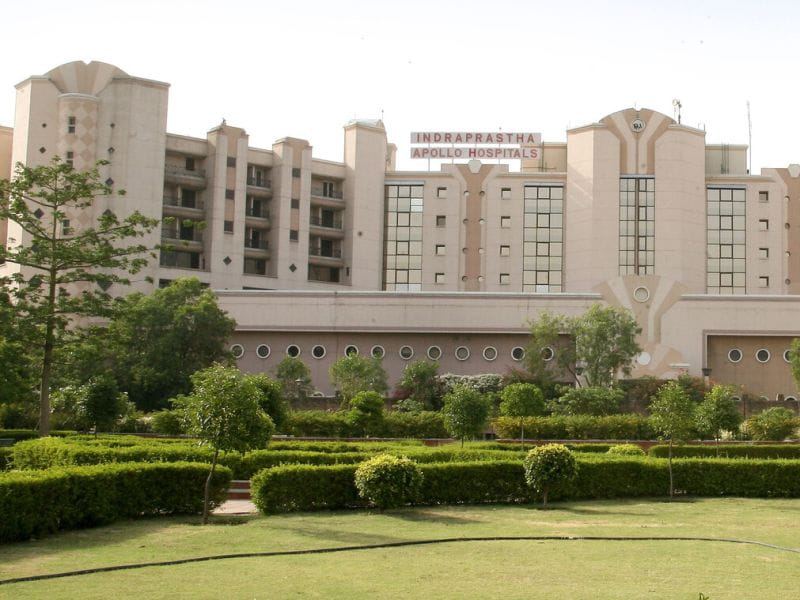
Hospital Overview
- Name of the Hospital: Indraprastha Apollo Hospital
- Location: New Delhi, Delhi
- Established: 1996
- Accreditations: JCI, NABH
Achievements and Milestones
- Number of Liver Transplants Performed: Over 3,500 liver transplants.
- Pioneering Techniques: Innovations in living donor liver transplantation.
- Firsts: The first successful pediatric liver transplant was in India.
- Success Rate: Approximately 90% success rate in liver transplants.
- Other Important Achievements: Recognized for high-quality patient care and advanced medical technology.
Medical Team
- Surgeons: Dr. Subash Gupta (Chief Liver Transplant Surgeon) and Dr. Neerav Goyal (Senior Consultant).
- Multidisciplinary Team: Comprises hepatologists, anesthetists, critical care specialists, and support staff.
- Experience: A Team with decades of experience in liver transplantation.
Facilities and Technology
- Liver Transplant ICU: Dedicated transplant ICU with advanced life support systems.
- Advanced Technology: State-of-the-art surgical and diagnostic equipment.
- Imaging and Diagnostic Facilities: Comprehensive imaging services, including high-resolution MRI and CT scans.
Comprehensive Care
- Pre-Transplant Evaluation: A Comprehensive evaluation process for donors and recipients.
- Post-Transplant Care: Extensive post-operative care and rehabilitation services.
- Support Services: Psychological counseling, dietary support, and patient education programs.
4. Fortis Hospital, Mumbai:
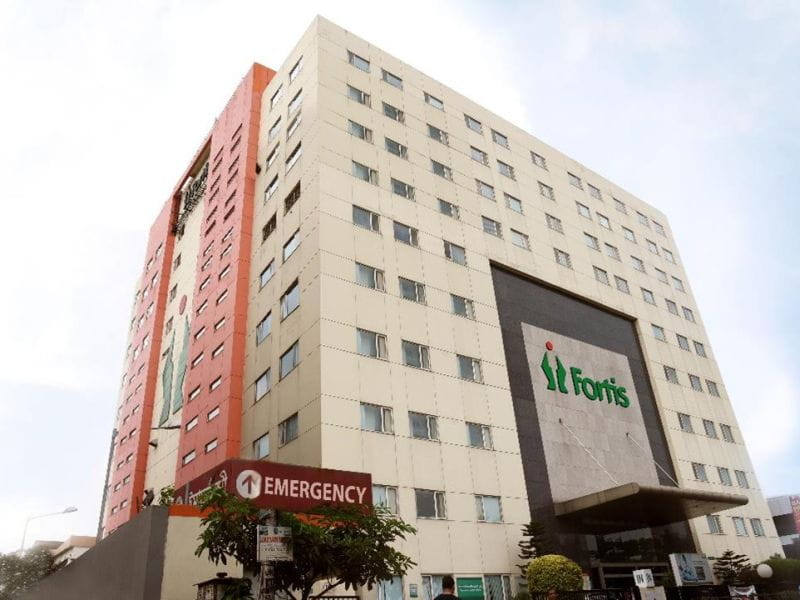
Hospital Overview
- Name of the Hospital: Fortis Hospital, Mulund
- Location: Mumbai, Maharashtra
- Established: 2002
- Accreditations: NABH, JCI
Achievements and Milestones
- Number of Liver Transplants Performed: Over 1,500 successful liver transplants.
- Pioneering Techniques: Known for cadaveric and living donor liver transplants.
- Firsts: First hospital in Western India to perform a successful pediatric liver transplant.
- Success Rate: Around a 92% success rate in liver transplant procedures.
- Other Important Achievements: Awarded for excellence in organ transplantation programs.
Medical Team
- Surgeons: Dr. Ravi Mohanka (Chief Liver Transplant Surgeon) and Dr. Rakesh Rai (Consultant, Liver Transplant).
- Multidisciplinary Team: Includes transplant coordinators, hepatologists, and anesthetists.
- Experience: Combined expertise of over 30 years in liver transplant surgeries.
Facilities and Technology
- Liver Transplant ICU: Specialized ICU for transplant patients with advanced monitoring systems.
- Advanced Technology: Utilizes 3D surgical imaging and robotic-assisted surgery.
- Imaging and Diagnostic Facilities: High-resolution CT scans, MRIs, and liver elastography.
Comprehensive Care
- Pre-Transplant Evaluation: In-depth evaluation for both donors and recipients.
- Post-Transplant Care: Tailored rehabilitation plans and regular follow-up schedules.
- Support Services: Counseling, nutritional guidance, and family support programs.
5. Manipal Hospitals, Bangalore:
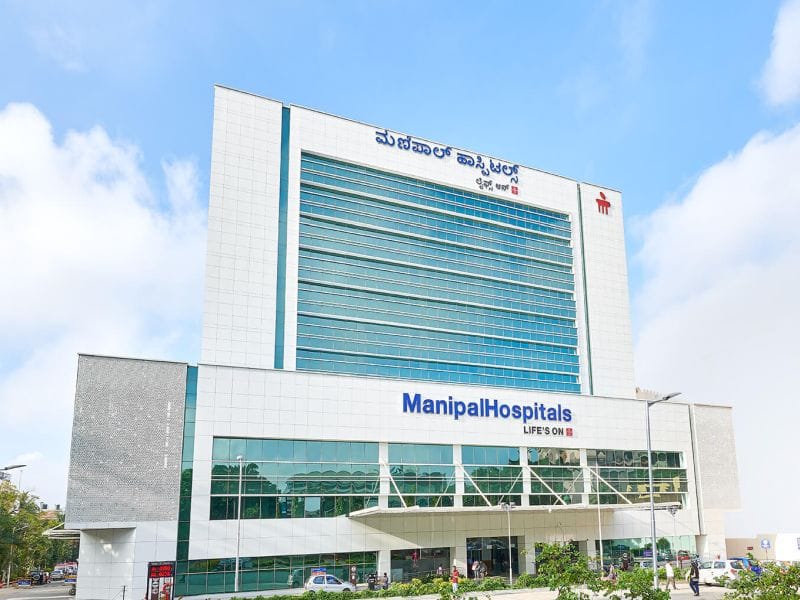
Hospital Overview
- Name of the Hospital: Manipal Hospital
- Location: Bangalore, Karnataka
- Established: 1991
- Accreditations: NABH, ISO 9001:2008
Achievements and Milestones
- Number of Liver Transplants Performed: Over 1,000 successful transplants.
- Pioneering Techniques: Expertise in living donor liver transplants.
- Firsts: Performed one of the first split liver transplants in Karnataka.
- Success Rate: The Success rate of approximately 90%.
- Other Important Achievements: Recognized for affordable and high-quality care.
Medical Team
- Surgeons: Dr. Sanjay Govil (Chief Liver Transplant Surgeon), Dr. Sudarshan Ballal (Chairman, Medical Advisory Board).
- Multidisciplinary Team: Includes hepatologists, anesthetists, and intensivists.
- Experience: Decades of combined experience in liver transplant and hepatology.
Facilities and Technology
- Liver Transplant ICU: Dedicated ICU with advanced infection control protocols.
- Advanced Technology: Cutting-edge tools for minimally invasive and laparoscopic procedures.
- Imaging and Diagnostic Facilities: Comprehensive imaging services with state-of-the-art MRI and CT equipment.
Comprehensive Care
- Pre-Transplant Evaluation: Comprehensive donor and recipient evaluation programs.
- Post-Transplant Care: Continuous monitoring, rehabilitation services, and patient education.
- Support Services: Counseling and dietary support for patients and families.
6. Max Super Speciality Hospital, Delhi:
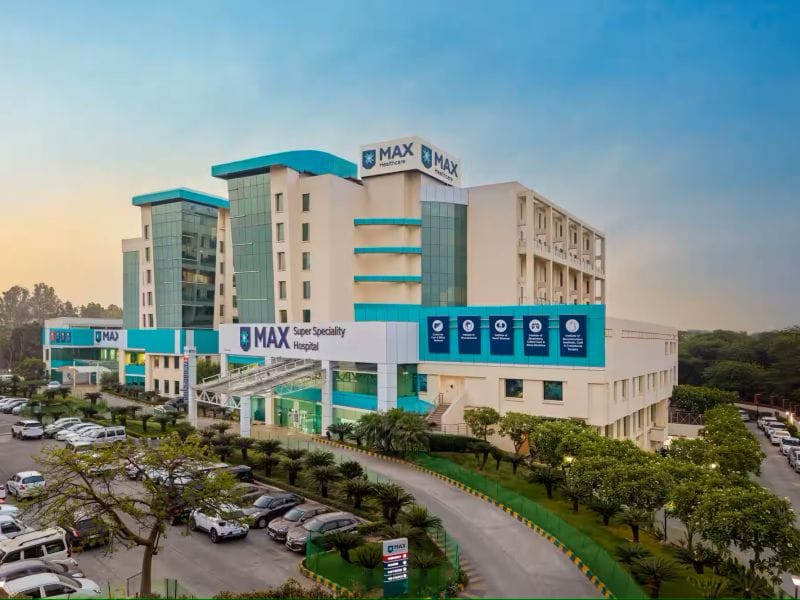
Hospital Overview
- Name of the Hospital: Max Super Speciality Hospital
- Location: Saket, New Delhi, Delhi
- Established: 2000
- Accreditations: NABH, NABL
Achievements and Milestones
- Number of Liver Transplants Performed: Over 1,500 successful transplants.
- Pioneering Techniques: Specializes in minimally invasive liver transplantation techniques.
- Firsts: Recognized for performing some of the most complex liver transplants in India.
- Success Rate: Around a 90% success rate.
- Other Important Achievements: Noted for innovative approaches in donor-recipient matching.
Medical Team
- Surgeons: Dr. Subhash Gupta (Chief Liver Transplant Surgeon) and Dr. Arvind Khurana (Director, Gastroenterology).
- Multidisciplinary Team: Comprises experienced anesthetists, hepatologists, and transplant coordinators.
- Experience: A highly experienced team with decades of expertise.
Facilities and Technology
- Liver Transplant ICU: Advanced ICU dedicated to post-transplant care.
- Advanced Technology: Uses the latest surgical tools and 3D imaging systems.
- Imaging and Diagnostic Facilities: Features cutting-edge diagnostic imaging tools like liver elastography and high-resolution MRI.
Comprehensive Care
- Pre-Transplant Evaluation: In-depth evaluation processes for donors and recipients.
- Post-Transplant Care: Comprehensive care plans with a focus on rehabilitation and follow-ups.
- Support Services: Includes psychological counseling, nutritional advice, and support groups.
7. Kokilaben Dhirubhai Ambani Hospital, Mumbai:
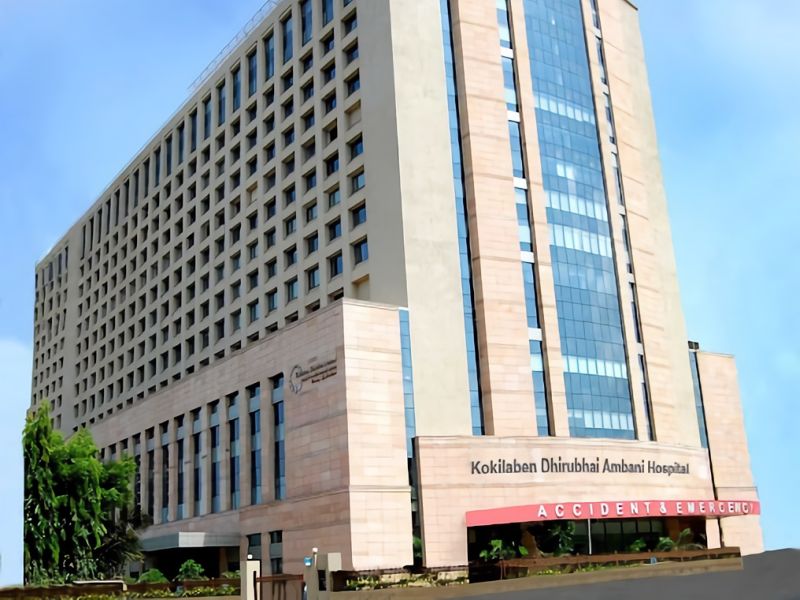
Hospital Overview
- Name of the Hospital: Kokilaben Dhirubhai Ambani Hospital
- Location: Mumbai, Maharashtra
- Established: 2009
- Accreditations: NABH, JCI
Achievements and Milestones
- Number of Liver Transplants Performed: Over 1,000 liver transplants completed.
- Pioneering Techniques: Expertise in pediatric and split liver transplants.
- Firsts: Known for performing some of the most challenging liver transplant surgeries in India.
- Success Rate: Over 90% success rate.
- Other Important Achievements: Recognized for advanced liver disease management programs.
Medical Team
- Surgeons: Dr. Vinay Kumaran (Head, Liver Transplant & HPB Surgery), Dr. Girish Bapat (Consultant).
- Multidisciplinary Team: Includes specialized hepatologists, critical care experts, and dietitians.
- Experience: Decades of collective expertise in transplantation.
Facilities and Technology
- Liver Transplant ICU: Fully equipped ICU for transplant recovery.
- Advanced Technology: Incorporates robotic surgical systems and the latest diagnostic tools.
- Imaging and Diagnostic Facilities: Features advanced liver imaging and blood analysis systems.
Comprehensive Care
- Pre-Transplant Evaluation: Comprehensive pre-operative screenings for both donors and recipients.
- Post-Transplant Care: Focus on rehabilitation, dietary support, and infection prevention.
- Support Services: Counseling services and family support programs are available.
8. Artemis Hospital, Gurgaon:
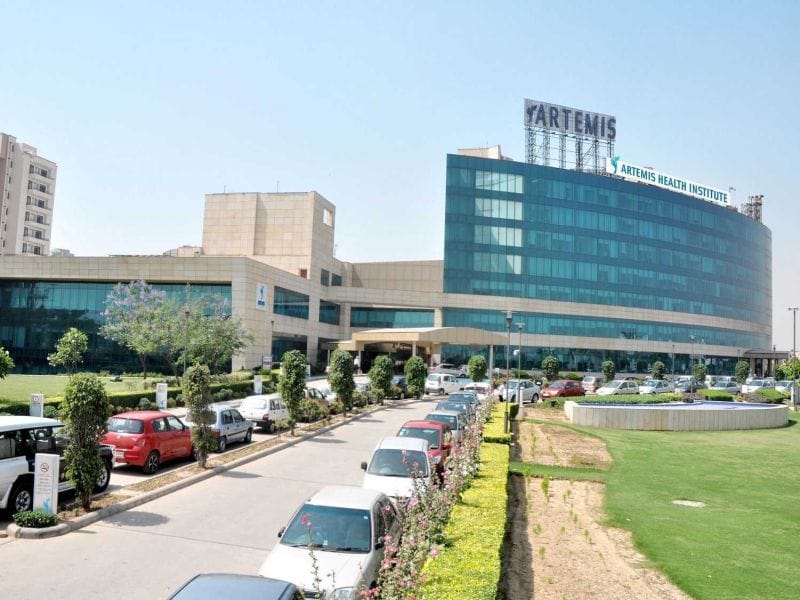
Hospital Overview
- Name of the Hospital: Artemis Hospital
- Location: Gurgaon, Haryana
- Established: 2007
- Accreditations: NABH, JCI
Achievements and Milestones
- Number of Liver Transplants Performed: Over 1,000 successful cases.
- Pioneering Techniques: Advanced laparoscopic liver surgeries.
- Firsts: Known for high success rates in high-risk liver transplant cases.
- Success Rate: Around 91% in liver transplantation.
- Other Important Achievements: Known for excellence in pediatric liver care.
Medical Team
- Surgeons: Dr. Giriraj Bora (Lead Liver Transplant Surgeon) and Dr. Raman Suri (Consultant Hepatologist).
- Multidisciplinary Team: Hepatologists, anesthetists, intensivists, and dietitians.
- Experience: A team with extensive experience in complex transplants.
Facilities and Technology
- Liver Transplant ICU: Specialized ICU with state-of-the-art monitoring.
- Advanced Technology: Equipped with the latest surgical & diagnostic tools.
- Imaging and Diagnostic Facilities: Advanced liver imaging and diagnostic labs.
Comprehensive Care
- Pre-Transplant Evaluation: Rigorous screening and counseling sessions.
- Post-Transplant Care: Includes infection control, dietary plans, and emotional support.
- Support Services: Family support and psychological counseling are provided.
9. Narayana Health City, Bangalore:
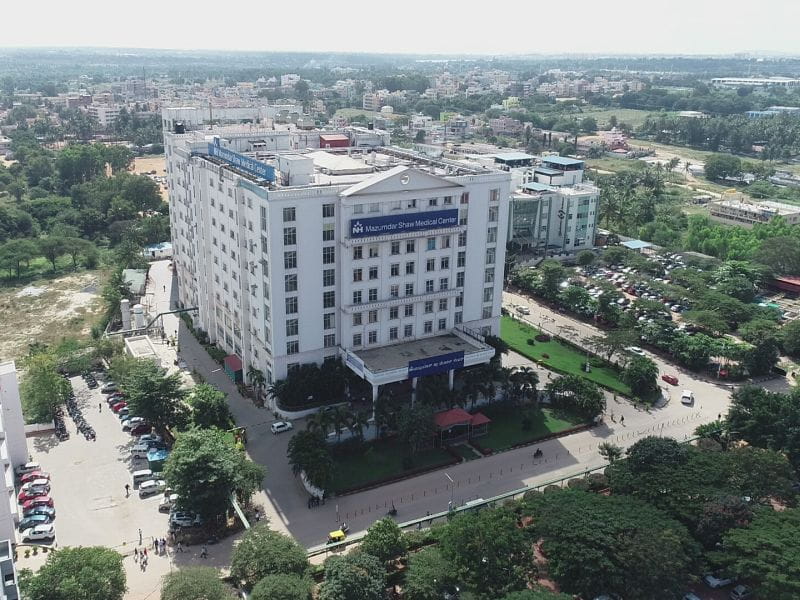
Hospital Overview
- Name of the Hospital: Narayana Health City
- Location: Bangalore, Karnataka
- Established: 2001
- Accreditations: NABH, JCI
Achievements and Milestones
- Number of Liver Transplants Performed: Over 1,000 successful transplants.
- Pioneering Techniques: Expertise in minimally invasive donor surgeries.
- Firsts: Successfully performed Karnataka’s first liver transplant with a living donor.
- Success Rate: Approximately 89% success rate.
- Other Important Achievements: Recognized for its extensive organ transplant program.
Medical Team
- Surgeons: Dr. Mahesh Gopasetty (Chief Liver Transplant Surgeon) and Dr. Ravi Kiron (Consultant, Hepatology).
- Multidisciplinary Team: Includes transplant specialists, hepatologists, anesthetists, and dietitians.
- Experience: Combined experience of over 20 years in liver transplantation.
Facilities and Technology
- Liver Transplant ICU: State-of-the-art ICU with infection control measures.
- Advanced Technology: Use of laparoscopic and robotic-assisted techniques.
- Imaging and Diagnostic Facilities: Advanced facilities for liver imaging and biopsy.
Comprehensive Care
- Pre-Transplant Evaluation: Detailed donor-recipient evaluations and risk assessments.
- Post-Transplant Care: Includes rehabilitation, infection control, and follow-up clinics.
- Support Services: Psychological counseling, family support, and nutritional guidance.
10. BLK Super Speciality Hospital, Delhi:
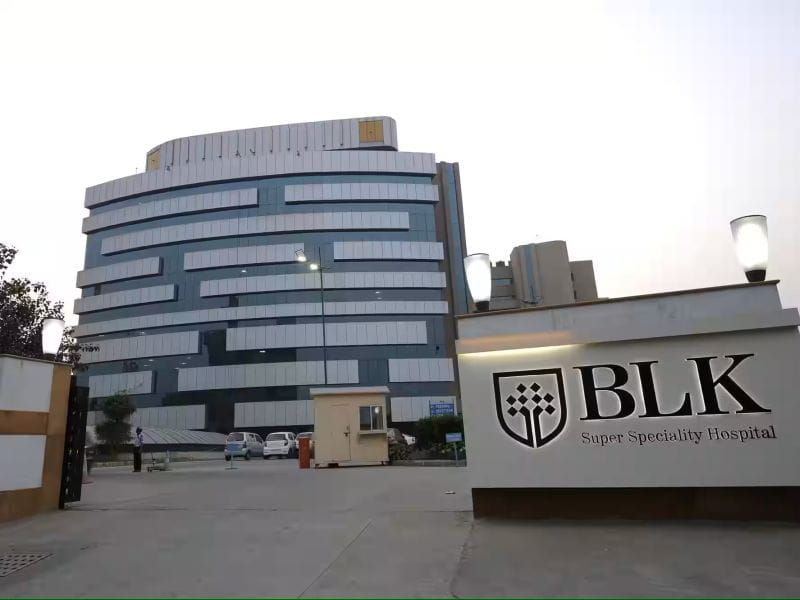
Hospital Overview
- Name of the Hospital: BLK-Max Super Speciality Hospital
- Location: New Delhi, Delhi
- Established: 1959
- Accreditations: NABH, NABL, JCI
Achievements and Milestones
- Number of Liver Transplants Performed: Over 1,200 successful liver transplants.
- Pioneering Techniques: Expertise in cadaveric and ABO-incompatible liver transplants.
- Firsts: Successfully performed Delhi’s first adult living donor liver transplant.
- Success Rate: Around a 90% success rate.
- Other Important Achievements: Noted for excellence in high-risk transplant cases.
Medical Team
- Surgeons: Dr. Abhideep Chaudhary (Senior Liver Transplant Surgeon) and Dr. Ajit Jangra (Consultant Hepatologist).
- Multidisciplinary Team: Comprises transplant surgeons, hepatologists, anesthetists, and critical care specialists.
- Experience: Combined expertise exceeding 25 years in liver transplantation.
Facilities and Technology
- Liver Transplant ICU: Advanced ICU with 24/7 monitoring.
- Advanced Technology: Incorporates the latest surgical instruments and 3D imaging systems.
- Imaging and Diagnostic Facilities: State-of-the-art diagnostic labs for comprehensive liver evaluation.
Comprehensive Care
- Pre-Transplant Evaluation: In-depth assessments of donors and recipients.
- Post-Transplant Care: Holistic care with dietary plans, counseling, and infection management.
- Support Services: Includes patient education, family counseling, and financial planning.
Life After Liver Transplant In India
Life after a liver transplant in India can be a long and difficult journey. The first few weeks after the transplant are the most critical. Patients must follow a strict medication regimen to ensure the success of the transplant. They must also follow a healthy diet and lifestyle to ensure the best possible outcome.
In the first few weeks after the transplant, patients are typically required to stay in the hospital for monitoring. This includes frequent blood tests and other assessments. They may also be required to take part in physical therapy and rehabilitation. During this time, the patient and their family must learn how to manage the side effects of the surgery and medications. Once the patient is discharged, they will need to continue to take medications to prevent infection and rejection of the new organ. The patient must also attend regular check-ups with their doctor to ensure the transplant is successful.
In the long term, living with a transplanted organ can be a challenge. The patient must continue to take medications and follow a healthy lifestyle. It is also important to attend regular check-ups with their doctor. The cost of a liver transplant in India can be very expensive. Patients may need to arrange for long-term financial assistance to cover the cost of their medical care. There is also a range of support services available to help patients and their families adjust to their new life.
The long-term prognosis of a liver transplant in India is generally good. With proper care and lifestyle management, patients can expect to live a healthy and active life. In case you wonder how to raise funds for this complex and expensive procedure, crowdfunding can be an ideal solution.
Conclusion
Liver transplantation in India has become a highly effective and life-saving procedure, offering patients access to world-class healthcare at a fraction of the cost compared to other countries. With numerous renowned hospitals spread across the country, such as Medanta, Global Hospitals, Apollo, Fortis, and others, India has positioned itself as a global leader in liver transplant surgeries. These hospitals have state-of-the-art medical technology and are staffed with highly skilled surgeons & medical professionals, ensuring high success rates in liver transplant procedures. The liver transplantation cost in India is significantly more affordable compared to countries like the U.S. or the U.K., making it an attractive option for both domestic and international patients.
While the liver transplantation costs in India can still be a significant financial burden for many, they remain much more manageable compared to global standards. Typically, the cost ranges from ₹20 to ₹35 lakhs, depending on the hospital, the complexity of the surgery, and the patient’s medical history. While this is affordable compared to Western nations, it may still present a challenge for some individuals, particularly in the case of low-income families.
In such cases, crowdfunding platforms like ImpactGuru offer a valuable solution. These platforms allow families and patients to raise funds from a network of generous individuals, friends, and communities, making it easier to manage the high liver transplantation cost. Crowdfunding provides the financial support needed for the procedure and brings together a supportive network of people, easing the emotional and financial burdens during such a critical time.
For more comprehensive details on treatment costs, explore our Comprehensive Guide to Treatment & Surgery Costs in India.
FAQs
Is Liver Transplant Possible?
Yes, a liver transplant is possible and is a lifesaving procedure for patients with severe liver damage or failure. It involves substituting a diseased liver with a healthy liver from a living or deceased donor.
What Is a Liver Transplant?
A liver transplant is a surgical procedure where a damaged or diseased liver is replaced with a healthy liver from a donor. It is typically performed for conditions like cirrhosis, liver cancer, or acute liver failure.
What Is The Cost Of a Liver Transplant In India?
The price of a liver transplant in India ranges from ₹20 to ₹35 lakhs, depending on the hospital, location, and complexity of the procedure.
How Does A Liver Transplant Work?
In a liver transplant, surgeons replace the diseased liver with a healthy liver or a portion of it from a donor. The procedure involves connecting blood vessels and bile ducts to restore normal liver function.
What Disqualifies You From A Liver Transplant?
Factors like advanced age, active infections, uncontrolled medical conditions, cancer outside the liver, severe alcohol abuse, or lack of post-surgery support can disqualify you from a liver transplant.
When Liver Transplant Is Needed?
A liver transplant is advised when the liver fails due to chronic conditions like cirrhosis, hepatitis, liver cancer, or acute liver failure, making it unable to perform essential functions.
How To Register For a Liver Transplant In India?
To register for a liver transplant in India, you must consult a certified transplant hospital, undergo medical evaluations, and be listed in the National Organ and Tissue Transplant Organization (NOTTO) database for organ allocation.
How Long Can A Person Live With a Liver Transplant?
With proper care, a person can live 15-20 years or more after a liver transplant. Many patients lead a healthy, productive life post-transplant with regular follow-ups and medication.
Is Liver Transplant Successful In India?
Yes, liver transplants in India have a success rate of 85-90%, comparable to global standards. Leading hospitals with experienced surgeons and advanced technology contribute to these excellent outcomes.
Which Is The Best Hospital For Liver Transplant In India?
India has several top hospitals for liver transplants, including Medanta – The Medicity (Gurgaon), Apollo Hospitals (Delhi), and Global Hospitals (Chennai), renowned for their expertise and high success rates.












